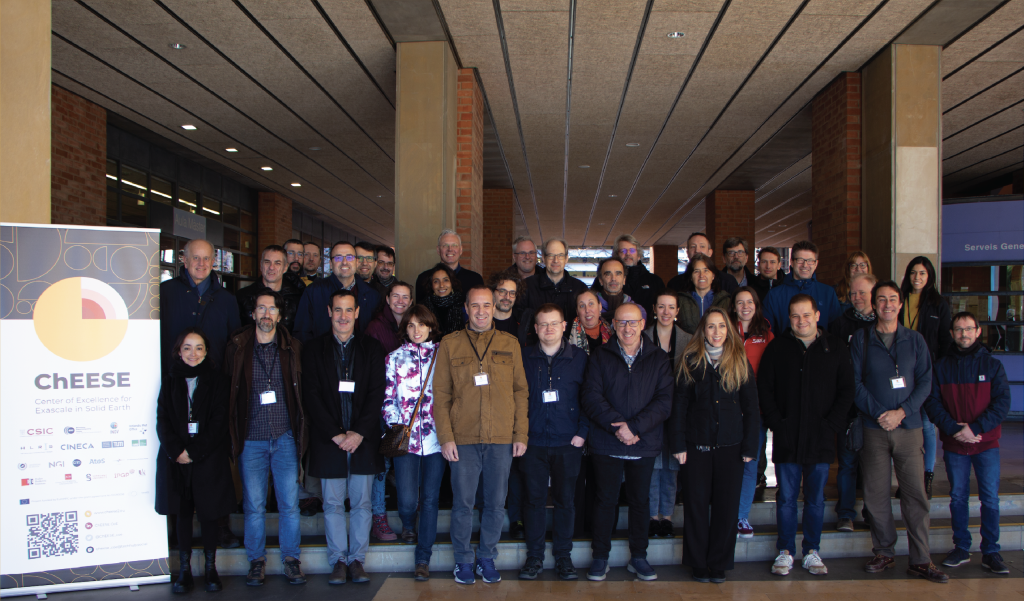Second phase of ChEESE takes off
The European High Performance computing (HPC) Centre of Excellence for Exascale on Solid Earth (ChEESE) is set to continue its mission of preparing community flagship codes in Solid Earth to evaluate and forecast geohazards. Coordinated by the Spanish National Research Council (CSIC), the second phase of this Centre of Excellence (CoE) is being co-funded with more than €7 million by the European Commission and national funds from ten other European countries.

ChEESE comprises 16 European organisations across research and technology.
ChEESE aims at addressing the multiple challenges posed by geohazards and accurate predictions with the help of exascale computers. The project primarily addresses European institutions responsible for operational monitoring networks but also at hardware developers, industrial stakeholders, public institutions and HPC centers. For this reason, this CoE pursues the following main objectives:
- To prepare 11 community flagship codes to address 12 domain-specific exascale Computational Challenges, enlarging the areas covered during the first implementation phase with additional disciplines.
- To develop a new generation of 9 Pilot Demonstrators for scientific problems requiring exascale computing.
- To use these Pilot Demonstrators in 15 Simulation Cases of particular relevance in terms of science, social relevance, or urgency.
The project will also develop simulation applications and offer training courses on the subjects studied. Arnau Folch, CSIC Professor and ChEESE project coordinator states that: “The ChEESE iniative will enhance the capabilities of European Solid Earth community and allow us to enable services related to urgent computing, early warning, geohazard assessment, and data analysis for European civil protections.”
Building on success: continuation of ChEESE
This new ChEESE is the second phase of a successful research project that was coordinated by the Barcelona Supercomputing Center until 2022. Now, CSIC is taking over to ensure that ChEESE continues to position itself as a hub for HPC software within the Solid Earth community.
